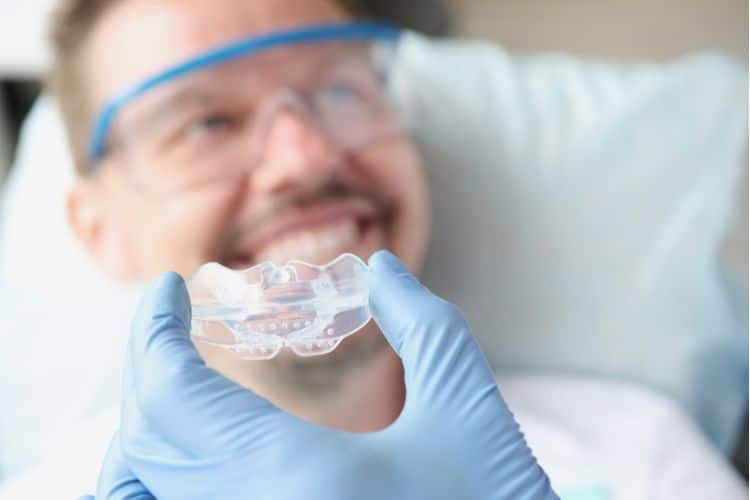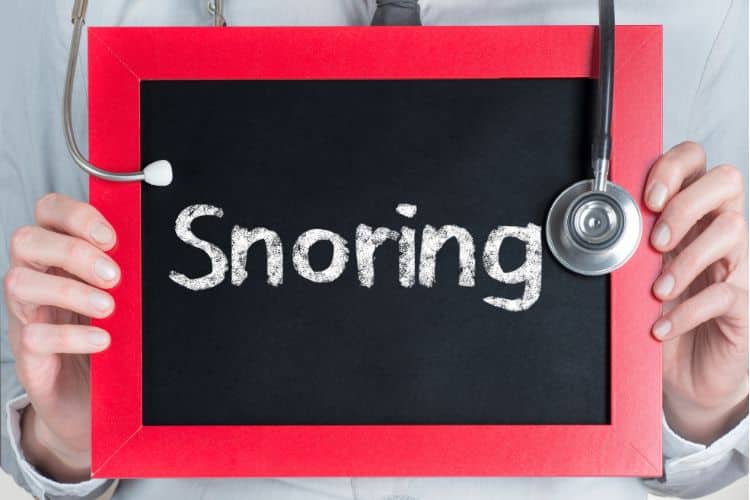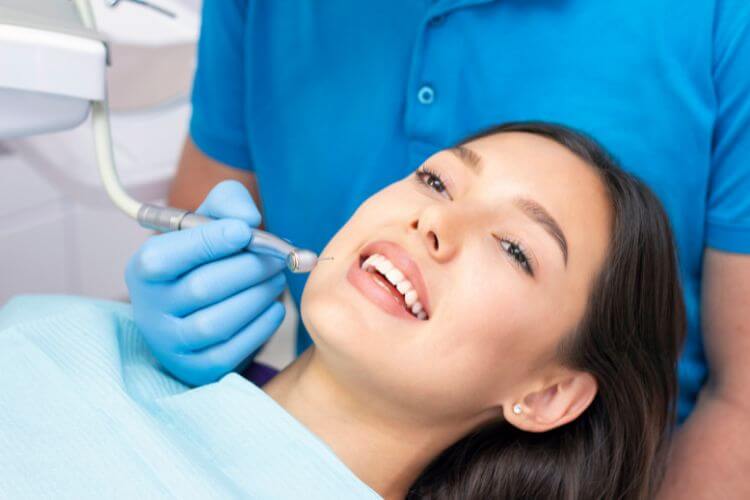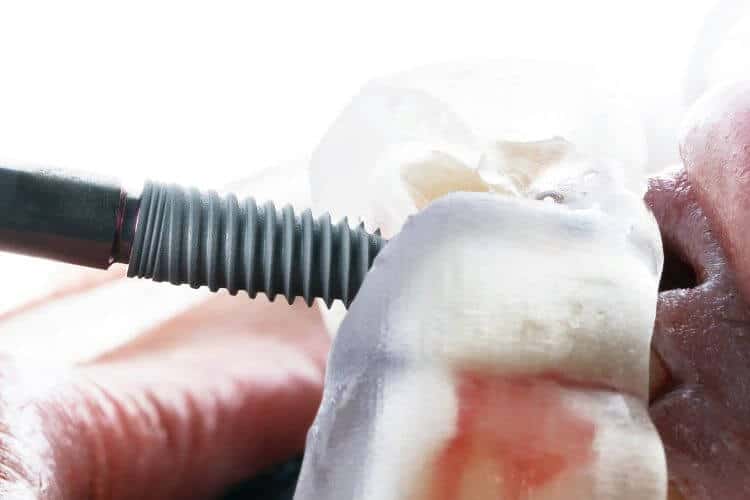Nothing disrupts a perfect day quite like sudden tooth pain.
It’s an unwanted visitor that strikes without any booking and meddles with your routine. We might not always have access to immediate dental care, which is why it’s important to know some easy, at-home strategies to alleviate tooth pain until you get professional help.
Understanding the root cause behind your discomfort is vital in seeking appropriate treatment. Additionally, being mindful of daily dental hygiene practices and taking necessary precautions can help you avoid these painful situations altogether.
So sit tight and grab a notepad. If you’re besieged by tooth trouble, this is exactly what you need to read!
Our article will guide you through immediate actions for tooth pain relief, share home remedies that can provide temporary respite, and help enlighten you about when it’s time to rush to a professional.
Moreover, we’ll walk you through maintaining good oral hygiene and habits to prevent future dental emergencies. And we promise, it’s not as complicated as it sounds, you just need to stay committed to your shiny pearls.
So, let’s dive into the world of emergency dental care and start off with some quick fixes for tooth pain!
Table of Contents
Immediate Actions for Tooth Pain Relief
Tooth pain has the notorious knack of striking at the absolute worst times, right?
Whether it’s in the middle of a romantic dinner or during a crucial work meeting, discomfort doesn’t wait for an opportune moment.
But worry not—we’re here to guide you through the immediate steps you can take for tooth pain relief.
Pro tip: these are handy to quell that ache until you can get proper treatment from a professional! ✨
Rinse with Saltwater
A tempting plate of fries left you with aching teeth? Your first line of defense just might be in your kitchen cabinet! 🏠
💡Although it sounds pretty basic, a good old saltwater rinse can work wonders.
- Mix 1/2 tsp of salt in 8 oz of warm water.
- Swish this solution in your mouth for about 30 seconds.
- Spit it out—remember, don’t swallow it—it isn’t exactly a gourmet beverage.
A saltwater rinse provides relief by reducing inflammation and cleaning the affected area. It’s like a mini spa treatment for your teeth, while you plan your visit to the dentist.
Apply Cold Compress
If your tooth has decided to throw a throbbing party in your mouth, a cold compress is your VIP pass to numb the pain zone.
❄️ It’s pretty simple to implement:
- Wrap a few ice cubes in a clean cloth. (Let’s leave the bare ice lollies for the summer cocktails!)
- Hold this compress to your cheek on the side of the painful tooth.
- Keep it there for about 15 minutes.
The chill of the compress constricts the blood vessels in the area, reducing pain and swelling.
Over-the-counter Pain Relievers
Lastly, when your teeth are on the revolt and nothing else seems feasible, over-the-counter (OTC) pain reliever could be your saving grace.
Remember to follow the dosing instructions for any medication carefully (After all, this isn’t a secret recipe for grandma’s cookies!). Ibuprofen and acetaminophen are commonly used OTC pain relievers that can alleviate tooth pain.
Remember, folks, the objective of these methods is temporary relief. Tooth pain often signals something more serious, and you should get it checked out by a dentist. Follow these steps, but also schedule an appointment with your dentist to get to the root of the problem—pun intended! 🦷💫
Home Remedies for Temporary Relief
Hey there, toothache can really put a damper on your day, can’t it? 😖
We’ve all been there and it’s not fun! So while we’re waiting for that dental appointment, wouldn’t it be wonderful to know some home remedies that can bring temporary relief and be an interim remedy?
Absolutely! We’ll examine four such tried and tested methods that are widely acclaimed by people worldwide.
Cloves or Clove Oil
First and foremost, cloves or clove oil. Just apply a small amount of clove oil directly on the affected tooth to get some much-needed relief.
Why is it so effective, you ask? Well, it’s all due to a wonderful compound present in clove oil called eugenol, a natural anesthetic agent that numbs the painful area and reduces ache.
A careful note of caution here: clove oil should be used sparingly, as too much of it can irritate your skin or upset your stomach. 🍂
Peppermint Tea
Next up on our list is peppermint tea. Gently biting on a peppermint tea bag can provide temporary relief from toothache.
This is because peppermint leaves have numbing properties that can soothe your throbbing gums and teeth. And on a sweeter note, it also leaves your mouth feeling fresh and minty! 😌
Garlic
Then we have garlic. It might not be the best choice for your breath, but chewing on a garlic clove or applying crushed garlic to the affected area can genuinely help lessen tooth pain.
The secret lies in garlic’s allicin content, an organic compound known for its powerful antibiotic properties.
So next time you’re battling a toothache, don’t fret about garlic breath – it’s a small price to pay for relief. 🧄
Onion
Last, but by no means least, is the humble onion. Placing a piece of raw onion on the tooth can provide temporary relief from toothache thanks to its potent antimicrobial properties.
Many cultures have been using onions for their medicinal purposes for centuries and now you know why! 😁
In a world often focused on fast relief and quick fixes, it can be comforting to know that there are natural, home-based therapies that can provide relief in time of need.
These remedies have stood the test of time and can help you manage your symptoms until you consult your dentist for a more permanent solution. Remember all these remedies are temporary, so always get a professional dental check when you have toothache issues.
When to Seek Professional Dental Care
Taking care of our sparkling smiles involves more than a regular regime of brushing and flossing. Sometimes, despite our best efforts, dental problems can still crop up. Recognizing the signs that you may need professional dental care is crucial in maintaining your oral health.
Persistent or Severe Pain
No one should have to live with constant discomfort, especially when it comes to your mouth.
Persistent pain could signal a myriad of underlying dental issues, such as tooth decay, gum infection, or even a cracked tooth. If you’ve been experiencing unrelenting pain for more than two days, it’s high time you sought dental care.
Waiting could worsen your condition, leading to more pain and possibly more invasive treatments.
Swelling or Abscess
Have you ever noticed a tender, swollen lump on your gum? 😟
That may be a dental abscess, a pocket of pus caused by a bacterial infection. Its presents are not to be taken lightly. These abscesses can lead to severe complications, including tooth loss and systemic infection.
If you spot a seemingly innocent bump or have persistent facial swelling, we recommend seeking immediate dental care.
Broken or Cracked Tooth
You might think a small chip or a minor crack on your tooth is no big deal, but trust us—it is! 💔
Even something as seemingly insignificant can expose the tooth’s nerve, leading to sensitivity, pain, and if left unattended, infection. It’s not just about aesthetics either; it’s a matter of health.
Remember, even minor tooth injuries should warrant a trip to the dentist.
Bleeding Gums
When you notice blood on your toothbrush or in your spit after brushing, it may be a sign of gum disease.
While occasional, minimal bleeding might not be concerning, persistent or heavy bleeding could indicate more severe conditions like periodontitis. But don’t panic!
Regular check-ups and early intervention can help combat these problems. One thing’s for sure—you shouldn’t ignore bleeding gums.
Remember, it’s better to be safe than sorry when it comes to your dental health. If you experience any of the above symptoms, don’t hesitate—seek professional dental care.
After all, maintaining our pearly whites is not just about the perfect selfie—it’s about health, wellness, and preventative care. So let’s treat our teeth with the respect they deserve. 😁
Maintaining Good Oral Hygiene
Taking good care of our teeth and gums isn’t just about stopping bad breath or winning a beauty contest; it has deep implications for our overall health as well.
A bright, confident smile may reflect well on your social, professional, and romantic endeavors, so here we are, sharing some effective tips on maintaining good oral hygiene! 😄
Brushing and Flossing
No oral hygiene routine is complete without the basic yet essential practices of brushing and flossing.
- Brush Your Teeth Twice a Day: The first thing we need to ensure is that we brush our teeth at least twice a day. Use a toothbrush with soft bristles and fluoride toothpaste, and remember to replace the toothbrush every three to four months, or sooner if it starts to fray.
- Floss Daily: Brushing alone can’t cleanse the tight spaces between the teeth or under the gum line. That’s where flossing comes in! With a gentle back-and-forth motion, and curving the floss against the tooth, you’ll get rid of the plaque and food particles that brushing can’t reach!
Achieving these daily can already help prevent toothaches and other severe dental issues. It’s like signing up for a health insurance policy for your mouth!
Regular Dental Check-ups
Even with impeccable oral care at home, it’s still essential we don’t skip our dentist appointments.
- Regular dental check-ups and cleanings at least once every six months can act as our early warning system. Dentists can identify potential problems – like cavities, gum disease, or even oral cancer – long before they transform into significant issues.
- In addition to the manual check-up, they often take X-ray images to identify issues not visible to the naked eye, which can save us a lot of time, pain, and money in the long run.
So, besides the DIY care routine, do remember to engage an expert’s touch every now and then. You’ll thank yourself in the long run!
To build and maintain sparkling, healthy teeth and gums, it’s not enough to occasionally swing by these routines; we need to make them an integral part of our daily lives.
So let’s do our best towards giving our oral health the attention it deserves. After all, our smile is often the first thing others notice about us, right? 😄
Preventing Dental Emergencies
Preventing dental emergencies is not as challenging as we may think.
With a few simple strategies and preventive measures, we can significantly reduce the risk of experiencing unexpected dental problems, thus saving us from discomfort and unnecessary expenses.
Together, let’s take quick tour through some of these preventive measures to keep our teeth and gums healthy and happy. 😊
Wearing Mouthguards during Sports 🏈
One of the best ways to protect our pearly whites is by wearing a mouthguard during sports. It acts as a shield for our teeth, protecting them from sudden impacts that could lead to injuries.
Remember, our teeth, unlike a broken vase, cannot be simply glued back together. So, wearing a mouthguard while participating in sports activities such as football, boxing, or even cricket can be a real tooth-saver!
Avoiding Hard Foods and Ice Chewing 🍦
Next up, let’s talk about eating habits! Our teeth may seem invincible, but chewing hard foods or ice can put undue stress on them.
The result? Cracked or broken teeth – and trust us, it’s as painful as it sounds! An easy way to prevent this is by consciously avoiding hard foods and saying no to the habit of chewing on ice.
Using Tools Properly 🔧
Finally, it might be tempting to use our teeth as tools – opening bottle caps, tearing open packages – we’ve all been there!
However, these seemingly harmless acts can lead to serious tooth damage. It’s crucial to remember our teeth are not designed to be used as scissors or bottle openers.
Using tools properly for these tasks is a simple change that can go a long way in protecting our teeth from unexpected injuries.
When it comes to preventing dental emergencies, a little prudence and a dash of discipline go a long way.
Let’s cherish our smiles, respect our teeth, and give them the care they deserve. After all, a smile is the universal language of joy – let’s ensure ours remains intact! 😄
Conclusion
Managing tooth pain is quite challenging, but with the right practices and approach, one can alleviate the discomfort until professional care is available.
Home remedies and over-the-counter medications offer temporary relief, yet persistent pain, swelling, broken teeth, or bleeding gums call for immediate professional attention.
While these tips are designed to help with minor dental emergencies, it’s imperative to remember that they don’t replace a visit to the dentist.
Regular check-ups and good oral hygiene routines at home can go a long way in preventing many dental health complications.
At Wilshire Smile Studio, we stress the importance of maintaining good oral health to prevent dental emergencies. Our experienced team is always ready to ensure you receive the best possible care when you’re in pain or faced with a dental emergency.
Don’t hesitate! Reach out to us for any dental concerns, and let’s keep that smile bright and beautiful. 😁
Secure your oral health today by booking a free consultation with us online or calling (323) DENTIST (323-336-8478)
Frequently Asked Questions
1. What are some common causes of tooth pain?
Common causes of tooth pain include tooth decay, gum disease, tooth abscess, tooth fracture, teeth grinding, and dental trauma.
2. When should I seek emergency dental care for tooth pain?
You should seek emergency dental care for tooth pain if you experience severe and continuous pain, swelling, bleeding, or if you have a knocked-out tooth or a loose tooth due to trauma.
3. What can I do at home to manage tooth pain before seeing a dentist?
To manage tooth pain at home before seeing a dentist, you can rinse your mouth with warm saltwater, apply a cold compress to the affected area, take over-the-counter pain relievers, and avoid hot or cold foods and drinks.
4. Should I apply aspirin directly to the painful tooth?
No, you should not apply aspirin directly to the painful tooth as it may cause tissue damage. It is best to take aspirin or other pain relievers orally as directed.
5. What should I expect during emergency dental care for tooth pain?
During emergency dental care for tooth pain, the dentist will conduct a thorough examination, possibly take X-rays, diagnose the cause of the pain, and provide appropriate treatment, which may include tooth extraction, root canal therapy, or prescribing medication.









